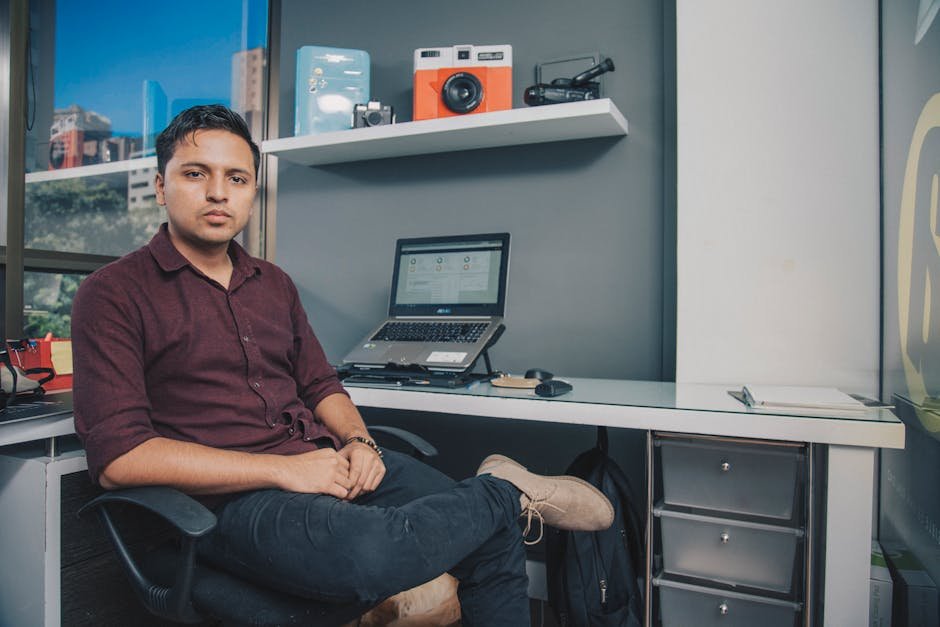The digital nomad lifestyle, with its promise of freedom and adventure, often overlooks a fundamental truth: without your health, the freedom is meaningless. The constant change, exposure to new environments, and disrupted routines can pose unique challenges to maintaining well-being. From navigating unfamiliar food cultures to finding reliable medical care in a foreign land, being a healthy nomad isn’t just about luck; it’s about proactive planning, smart habits, and a robust understanding of how to manage your physical and mental health on the go. This guide provides essential health hacks to ensure your nomadic journey remains vibrant and sustainable.
1. The Unique Health Challenges of Nomad Life
Life on the road introduces health complexities that a static lifestyle rarely encounters.
- Dietary Shifts: Every new country brings a new food landscape. While exciting, it can also mean unfamiliar ingredients, different cooking methods, and varying hygiene standards. Finding consistent access to healthy, balanced meals can be a challenge.
- Disrupted Routines: Sleep cycles can be thrown off by time zone changes, varying accommodation comforts, and fluctuating work schedules. Consistent exercise routines are hard to maintain without a steady gym membership or familiar running routes.
- Exposure to New Pathogens: “Traveler’s stomach” is almost a rite of passage for some. New environments mean exposure to different bacteria, viruses, and parasites that your immune system isn’t accustomed to.
- Mental Stress: The constant adaptation, managing cultural nuances, occasional loneliness, and the pressure to be productive can take a significant toll on mental health, leading to anxiety, stress, or even burnout.
- Access to Healthcare: Finding a trusted doctor, navigating a foreign healthcare system, understanding prescriptions, and dealing with language barriers in a medical emergency can be incredibly daunting.
2. Proactive Health Management Strategies
The best defense is a good offense. Implementing simple, consistent health hacks can make a world of difference.
Nutrition Hacks for Nomads
- Cook at Home Often: Whenever possible, choose accommodations with a kitchen (e.g., Airbnbs, serviced apartments). This gives you control over ingredients, portion sizes, and preparation methods.
- Prioritize Local Markets: Explore farmers’ markets and local grocery stores for fresh fruits, vegetables, and whole foods. It’s often cheaper and a great way to experience local culture.
- Hydration is Key: Carry a reusable water bottle. Research local tap water safety. If unsure, stick to filtered or bottled water. Staying hydrated combats fatigue and supports overall health.
- Mindful Eating Out: When enjoying local cuisine, be aware of portion sizes, opt for grilled or steamed options, and don’t be afraid to ask about ingredients if you have allergies or dietary restrictions.
Fitness on the Go
- Embrace Active Transport: Walk, bike, or use public transport instead of taxis or ride-shares. It’s built-in exercise and a great way to explore.
- Bodyweight Exercises & Resistance Bands: These require no equipment and can be done anywhere. Look up simple routines you can do in your hotel room or a park.
- Explore Local Fitness: Look for local gyms with short-term passes, join a yoga or Pilates class, or find parks for outdoor workouts. Many cities have free outdoor fitness equipment.
- Consistency Over Intensity: Even 15-20 minutes of movement daily is better than sporadic, intense workouts.
Sleep Hygiene Abroad
- Maintain a Consistent Schedule: As much as travel allows, try to go to bed and wake up around the same time. This helps regulate your body’s circadian rhythm.
- Create a Sleep Sanctuary: If possible, ensure your sleeping environment is dark, quiet, and cool. Pack earplugs, an eye mask, and even a small white noise machine if you’re sensitive to noise.
- Limit Screen Time: Avoid screens (phones, laptops) for at least an hour before bed.
- Adjust to Time Zones Gradually: For big time zone changes, try to adjust your sleep schedule by an hour or two each day before and after your flight.
Mental Well-being (Beyond Crisis)
While we’ve discussed the psychology of perpetual motion in depth, proactive daily mental health “hacks” are crucial:
- Mindfulness and Meditation Apps: Even 5-10 minutes a day can help manage stress and cultivate presence.
- Connect with Community: Actively seek out other nomads or locals for social interaction. Combatting loneliness is vital.
- Set Clear Boundaries: Separate work time from leisure time to prevent burnout. Don’t feel obligated to explore every minute of every day.
3. Managing Illness and Accidents Abroad
Despite your best efforts, illness or injury can happen. Being prepared can save you immense stress and expense.
- Travel Insurance is Non-Negotiable: This is your most vital health hack. Ensure you have comprehensive travel medical insurance that covers emergencies, hospital stays, potential medical evacuation, and repatriation. Many standard health insurance plans do not cover you adequately abroad. This level of preparedness is part of a broader strategy for Safety and Healthcare for Digital Nomads.
- Telemedicine Services: Many international travel insurance plans, or dedicated telemedicine providers, offer online consultations with doctors. This can be incredibly convenient for non-emergencies or to get a quick diagnosis without navigating a foreign clinic.
- Carry a Well-Stocked First-Aid Kit: Include:
- Any prescription medications (with a doctor’s note and generic names).
- Over-the-counter pain relievers, anti-diarrhea medication, and antacids.
- Band-Aids, antiseptic wipes, and antibiotic ointment.
- Allergy medication, insect repellent.
- Motion sickness tablets, if needed.
- Know How to Find a Doctor/Pharmacy:
- Ask your accommodation host for recommendations.
- Use Google Maps to find nearby pharmacies (farmacia, apoteket, etc.) or clinics.
- Your travel insurance provider often has a 24/7 hotline to direct you to approved medical facilities.
- For serious emergencies, know the local emergency number (e.g., 911, 112).
- Vaccinations & Preventative Measures: Research destination-specific health risks (e.g., malaria, dengue, specific diseases) and get recommended vaccinations well in advance. Practice good hygiene, especially hand washing.
- Language Barrier Preparedness: Keep a translation app handy. Write down key medical conditions, allergies, and medications in the local language for emergencies.
4. The Digital Nomad’s Health Toolkit
Beyond the physical items, your health toolkit includes essential digital and organizational resources.
- Digital Copies of Documents: Keep copies of your passport, visa, travel insurance policy, and a list of emergency contacts (both home and abroad) in a cloud service or encrypted drive.
- Travel Insurance App/Policy Details: Have your insurance provider’s contact number, policy number, and emergency procedures readily accessible.
- Medication List: A comprehensive list of all your medications, including generic names, dosages, and prescribing doctors, can be crucial if you need refills or emergency care.
- Translation App: Google Translate or similar apps are indispensable for medical situations.
- Water Filter Bottle: For sustainable hydration and peace of mind about water quality in various locations.
- Local SIM Card/eSIM: Ensures you always have connectivity for emergencies, navigation, and communication.
Conclusion: Health as Your Ultimate Nomad Enabler
The freedom of the digital nomad lifestyle is a gift, but it’s a gift that can only be truly enjoyed when grounded in robust health. By proactively addressing the unique challenges of staying well on the move—from smart nutrition and adaptable fitness to vigilant safety and emergency preparedness—you empower yourself to navigate the world with confidence and vitality. Your health is not merely an afterthought; it’s the ultimate enabler of your adventures, the foundation upon which your sustainable nomadic dream is built. Prioritize it, manage it wisely, and the world remains your vibrant, accessible playground.







